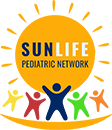Every single year, around 58,000 children under the age of five are hospitalized due to the respiratory syncytial virus (RSV) in the United States. While this respiratory virus typically induces mild, cold-like symptoms, RSV in children can result in severe illness. RSV is widespread around the U.S. during spring, winter, and fall. Read on to learn more about RSV and how to help keep your children safe against this virus.
RSV Signs And Symptoms In Children
RSV in children begins acutely, but can progress severely in the span of a few days. Many of the symptoms resemble the common cold, but it’s important to keep an eye out for them, especially if they worsen. It’s always better to be safe than sorry when it comes to your child’s health. If you see any of the following RSV symptoms in your child, contact your pediatrician:
- Persistent runny or stuffy nose
- Cough (which may become wheezing)
- Fever
- Decreased in appetite
- General feelings of sickness
- Sore throat
- Persistent mild headache
Infants under 6 months old typically show these signs and symptoms of an RSV infection:
- Decreased activity
- Apnea (pauses in the baby’s breathing)
- Irritability
- Decreased appetite
A Severe RSV Infection In Children
The Centers for Disease Control and Prevention state that all children potentially have contracted an RSV infection by 2 years old. While RSV cases are typically on the mild side, they may progress into severe, life-threatening illnesses like bronchiolitis (inflammation of the lungs’ small airways) and pneumonia (a lung infection). One to two in every 100 children under the age of 6 months may require hospitalization and may need intubation, oxygen, and/or mechanical ventilation to assist them with breathing and getting better.
Who Is At The Greatest Risk For Severe RSV Infection?
Children and babies who are at the greatest risk for severe RSV infection include:
- Infants 6 months and younger
- Premature infants
- Children under 2 years old with chronic lung disease and/or congenital heart disease
- Children with weakened immune systems
- Children with neuromuscular disorders
Protecting Your Child From An RSV Infection
As a parent or guardian, there are certain precautions you can take to protect your child, especially if your child is a high-risk for RSV:
- Regularly wash your hands and help your child do the same. You may also employ an alcohol-based hand sanitizer and keep it on hand for when soap and water isn’t readily available.
- Try to keep your hands off your child’s face as much as possible, and avoid touching your eyes, mouth, and nose before you wash your hands.
- When sneezing and coughing, always cover your mouth and nose (with a tissue whenever possible). Immediately discard the tissue after using.
- Disinfect and clean frequently touched surfaces and objects like doorknobs, counters, mobile devices, light switches, and remote controls. Such objects and surfaces may catch and retain droplets containing germs.
- Avoid close contact with people exhibiting symptoms of physical illness, and avoid sharing utensils, hugging, kissing, holding hands, and other forms of physical contact.
- Try and stay home when you are ill to avoid spreading your illness to others.
Contact Us Today
While RSV is common in children, you should still follow safety precautions to protect your child and see a pediatrician as soon as you detect potential symptoms. Consult with a top pediatrician in Pembroke Pines and Plantation, FL and schedule an appointment with Sunlife Pediatric Network today.

